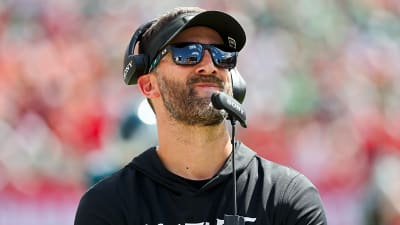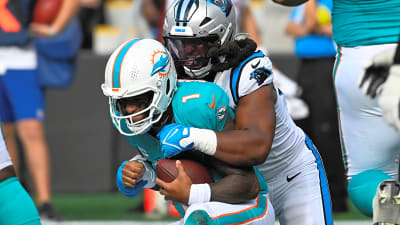
The Toronto Maple Leafs couldn’t have asked for a better start to their new season. Their 5–2 win over Montreal wasn’t just about the score — it was about how they played. For once, the Maple Leafs didn’t need a single star to carry them. They spread the load, played physical hockey, and stayed disciplined. After a summer of big questions and one very big departure, it was exactly the kind of opening statement the team needed.
Head coach Craig Berube has made it clear from the start that he wants a harder, more accountable brand of hockey. Game 1 offered a glimpse of what that might look like. There were flashes of star power, yes, but also a whole lot of blue-collar work that doesn’t always make the highlight reels. From the top line down to the fourth, Toronto showed structure, patience, and a willingness to fight for every inch. If that’s the blueprint for the season, it’s a good one.
Item One: A Team Win Built on Grit and Balance
There was a time when a Maple Leafs victory meant Auston Matthews or another of the Core Four had to do the heavy lifting. Not this one. Toronto’s 5–2 win looked and felt different. It wasn’t the product of one or two stars running wild; it was the result of four lines and six defencemen pulling in the same direction. The game was tight until the final minutes, but the Maple Leafs closed it out with poise and purpose — signs of a team finding its rhythm under Berube.
What stood out most was the balance. William Nylander and Morgan Rielly led the way, each with multi-point nights, but the scoring didn’t end there. Matthews had his goal, sure — but so did Calle Järnkrok and Bobby McMann. That’s not just good box-score news; that’s the foundation of sustainable hockey. Add in Matthew Knies’ eight hits and Steven Lorentz’s hard, honest work — two assists and six hits — and perhaps fans will start to see a pattern forming. This version of the Maple Leafs doesn’t just rely on talent; it grinds.
If there’s one word for it, it’s composed. Toronto took only two penalties all night, out-hit its opponent 37–28, and won nearly two-thirds of its faceoffs. That combination — discipline, physicality, and possession — is exactly what Berube preaches. It wasn’t perfect, but it was convincing. If Game 1 is any indication, this might be a Maple Leafs team learning to win the kind of games that used to slip away in the past.
All that said, there’s still room to grow. The three new middle-six forwards — Dakota Joshua, Matias Maccelli, and Nicolas Roy — didn’t quite find their footing in this one. They weren’t bad, but they didn’t make much of an impact either. You could see flashes of what each can bring, but they’ll need time to adjust and settle into Berube’s system. The good news? It’s only Game 1, and the runway is long.
Item Two: Is Bobby McMann Ready for the Top Six?
Last night’s game offered a glimpse of something Toronto fans have quietly hoped for — the Tavares line looked alive again. John Tavares was steady and purposeful, Nylander was in motion all night, and McMann played as though he belonged. There was chemistry there, and hockey that flowed. For a team still searching for its identity post-Marner, that’s worth noticing.

McMann brings an element that has often been missing beside Tavares and Nylander: pace, strength, and a willingness to drive the net. He’s not flashy, but last night he was direct. When he’s engaged, he wins pucks, finishes checks, and opens ice for the skill players. It might be time to give him a real look as a partner on that line and allow him to build a sustainable second-line identity.
At the same time, the front office hasn’t stopped hunting for a top-six forward. As Elliotte Friedman noted on Daily Faceoff’s Morning Cuppa Hockey, Toronto has been exploring options all summer. Whether that’s a left-winger for the second line or a top right-winger for Matthews, the search continues. Adding a proven top-six piece would instantly stabilize the lineup, balance out defensive coverage, and give coach Berube more options late in games.
Item Three: Rielly Reclaims His Confidence — and It Shows
Rielly came into this season with something to prove. After a tough 2024–25 campaign and a few honest offseason conversations with Maple Leafs management, he looked like a player determined to turn the page. Against the Canadiens, he did just that — picking up an assist on Järnkrok’s goal and later scoring the game-winner himself. On both plays, Rielly looked confident, skating with purpose, and jumping into the rush at exactly the right moments.

Head coach Craig Berube took note. “He skated well, moved the puck well, good reads, defended well — he was solid,” Berube said after the game. The pairing with Brandon Carlo appears to be paying off. Carlo’s stay-at-home steadiness has given Rielly the confidence to push offensively without second-guessing. It’s early, but this might be the best fit Rielly’s had on the blue line in a decade.
Berube also made a point to credit McMann, who opened Toronto’s scoring with a gritty deflection from a Nylander point shot. Beyond the goal, it was McMann’s situational awareness that stood out. Late in the game, protecting a one-goal lead, he battled down low and made the smart play to keep the puck deep — exactly the kind of detail Berube wants to see. Together, Rielly and McMann represented something bigger than a season-opening win: two players who’ve been challenged, responding with purpose. That’s how new identities take root.
What’s Next for the Maple Leafs?
The Maple Leafs head to Detroit next, looking to build on a game that offered both promise and direction. There’s still plenty to tighten up — especially in their defensive reads — but for a first night, this was a team that looked connected.
If Berube can bottle this mix of grit, balance, and confidence, Toronto might finally be learning how to win without relying on a single superstar. That’s been the missing ingredient for years. Maybe this season, they’ll find it.
More must-reads:
- Maple Leafs HC Craig Berube defends controversial roster decision
- Maple Leafs making the right call with major roster decision
- The 'Team USA men's basketball coaches' quiz
Breaking News
Trending News
Customize Your Newsletter
 +
+
Get the latest news and rumors, customized to your favorite sports and teams. Emailed daily. Always free!








